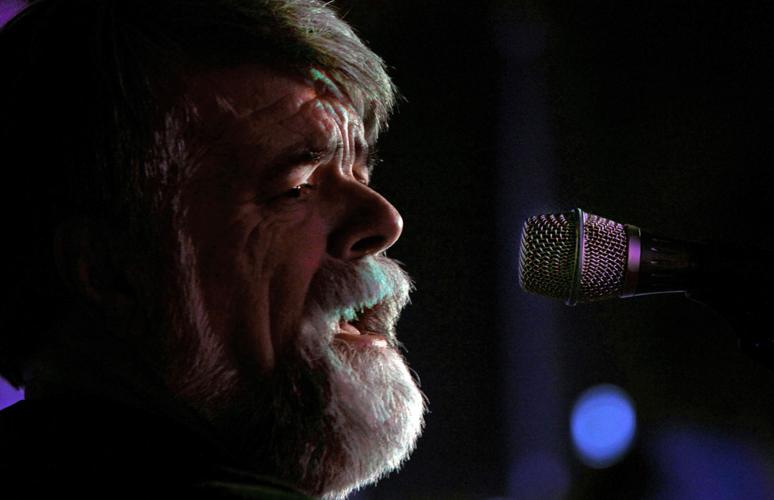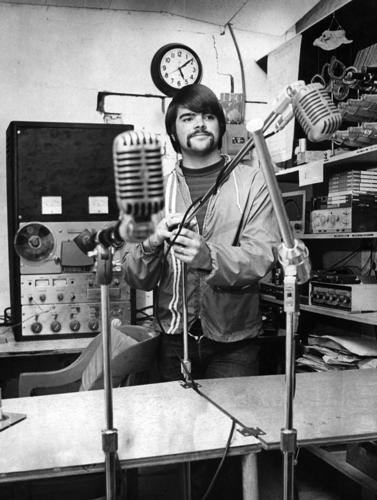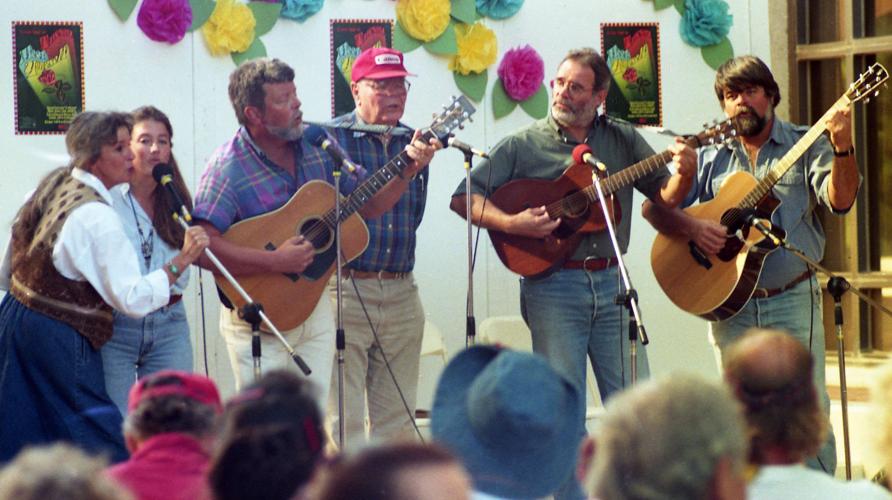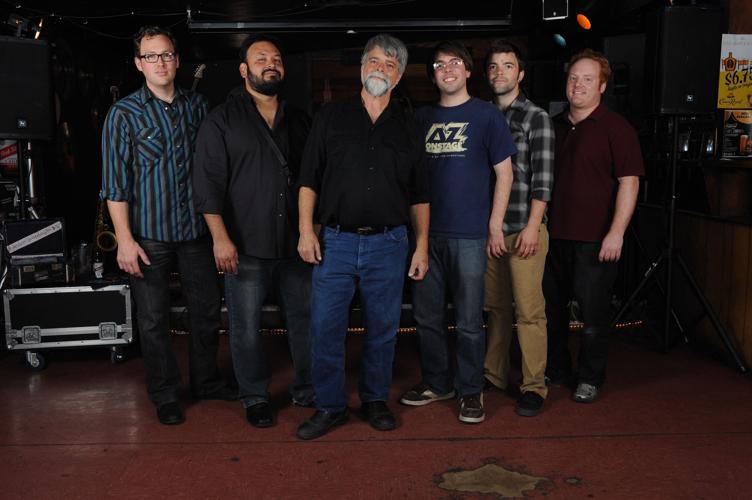Michael J. Ronstadt was in pain one night in early June at Monterey Court.
But when he took the stage with his sons, the pain seemed to lessen with every song they performed.
“By the time we got into that second set, that third set, he was his normal self,” Petie Ronstadt said of his father. “He was there in the moment and shared it. It was a pretty spectacular night.”
That June 11 performance to promote the family’s latest Ronstadt Generations CD turned out to be Michael J. Ronstadt’s last one. The Tucson musician died Sunday after battling liver cancer since the spring. He was 62.
Ronstadt was born in Tucson on Aug. 26, 1953, the youngest of Gilbert and Ruth Mary Ronstadt’s four children , which included big sister Linda Ronstadt. His sister described him as a Gyro Gearloose after the Donald Duck character, recalling how her brother and his childhood buddy Jim Brady, who now runs a popular Tucson recording studio, had a cable radio station when they were 9 or 10 years old and invented things including a hang glider.
“He tried to run off a cliff,” she recalled Tuesday. “They were building stuff and trying to broadcast stuff. Mike played the bass and he was bringing his bass back and forth to school. He had this big huge instrument with his arms around. He was really definitely Gyro Gearloose.”
After earning his GED, Michael J. Ronstadt moved to Los Angeles in the mid-1970s to pursue a music career. He worked days at the storied Westwood Music store and played solo and band gigs at night.
He also sang harmonies for his sister including on her groundbreaking Spanish-language album “Canciones de Mi Padre,” which many credit with reviving mariachi music in America.
“Whenever we needed an extra part I would just get a brother or cousin. He sang on several tunes and so did (late sister) Suzy,” Linda Ronstadt said. “You just took it for granted.”
In the early 1980s, Michael J. Ronstadt came home to Tucson to run the family’s hardware store, which his grandfather opened in the late 1800s. He kept it open until the late 1980s, closing just before the store’s 100th anniversary, his oldest son, Michael G. Ronstadt, said.
Michael J. Ronstadt then started a pump store that sold and serviced commercial and residential water pumps. The job meant he was on call day and night, his sons said, and his one great joy became his weekly classroom performances at their school.
Petie Ronstadt said the school eventually asked his father if he would play music for more classes and they agreed to pay him $100 a week. His father jumped at the chance and closed the pump business.
“He just wanted to do music. That was his passion. When he took the chance to jump in and do it, even as a little kid I could tell he was happier,” Michael G. Ronstadt added. “We always had what we needed and anything that Petie and I needed for music or sports, we worked it out.”
Michael J. Ronstadt carved out a musical life that included playing in Ronstadt Cousins with cousins Bill and John Ronstadt throughout the 1990s and early 2000s, and playing for several years with lifelong friend Ted Ramirez in the Santa Cruz River Band beginning in 2004.
“It was a natural, wonderful thing musically and personally because we just had so much in common,” said Ramirez, whose goal was to chronicle the musical and cultural history of the Southwest.
“Michael understood the music; he could sing in Spanish. He understood the language to a great degree and he understood the culture to a great degree. And he was a good singer,” said Ramirez, who played music with Ronstadt when they were kids.
Linda Ronstadt described her brother as a modern-day troubadour, someone who chronicled the world through song. One of his most impactful, she said, was the song he wrote in 2014 that chronicled the copper mine disaster in the Rio Sonora that turned the Mexico river blood red.
In 2015 he performed the song in Mexico as part of a tour from Canelo to Benámichi, Sonora, conducted by Ronstadt’s lifelong friend Bill Steen.
Steen and Ronstadt both had grandfathers who were from Banámichi, a small town in northern Sonora along the Rio Sonora.
Steen said a video of the song, which Ronstadt sung at a restaurant in Benámichi, became a hit in Mexico, attracting 80,000 likes on YouTube.
“That touched Michael. Even though he had been down there before, it was a way of connecting with the people and the culture down there probably in a way he never had before,” Steen said.
Michael G. Ronstadt said he believed his father accomplished all that he wanted in his musical life.
“He did what he wanted and what he loved,” his son said. “I think he did everything he wanted. I think he reached that goal.”
In addition to his sons and sister, Michael J. Ronstadt is survived by his wife, Deborah; granddaughter Annabelle; daughter-in-law Jackie; brother Peter; and dozens of nieces, nephews and cousins.
The family will hold private services. A public musical tribute will be held at a later date; no details have been released.







